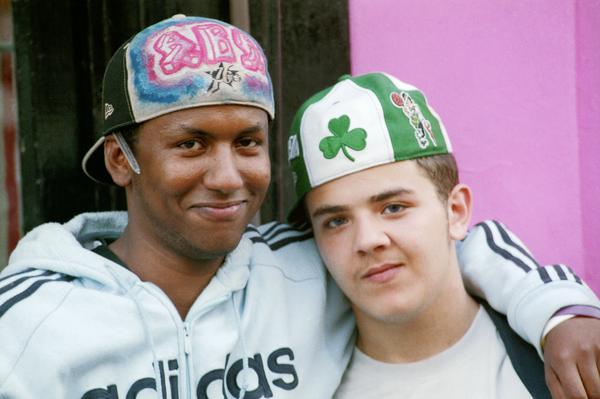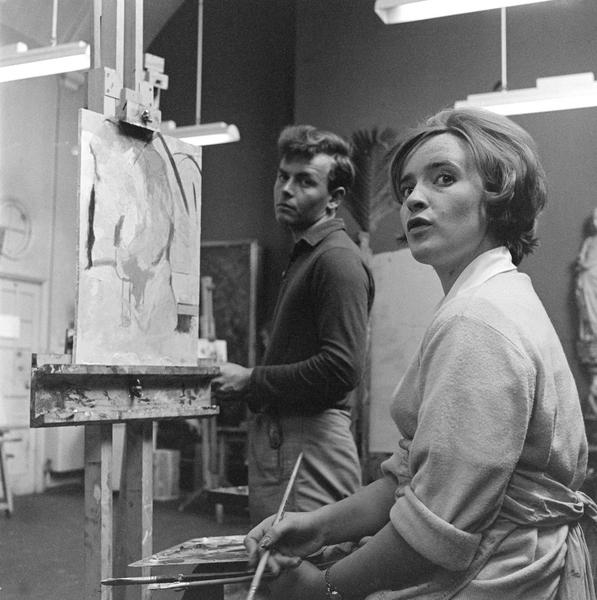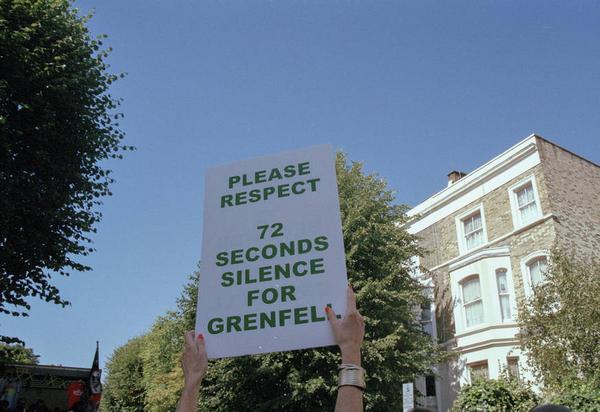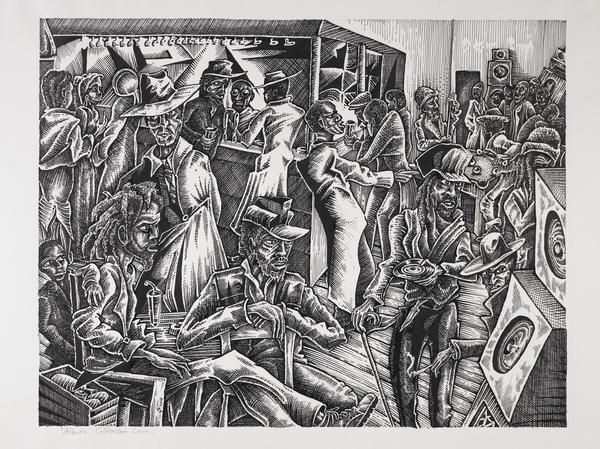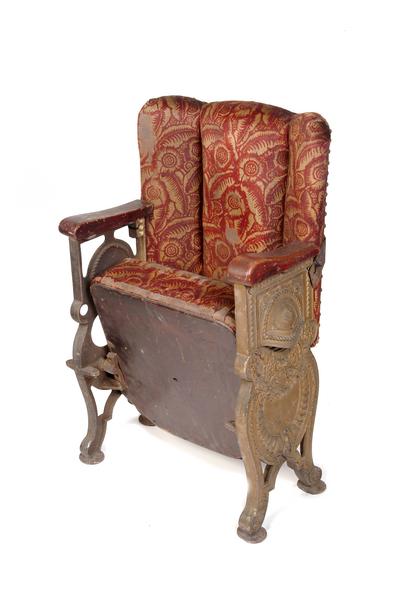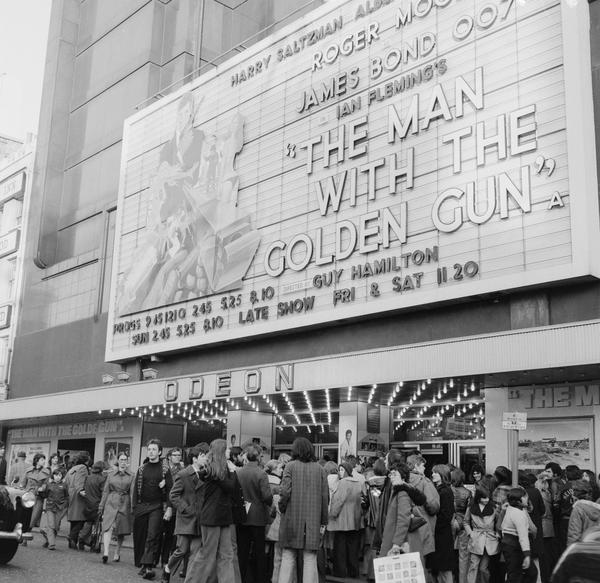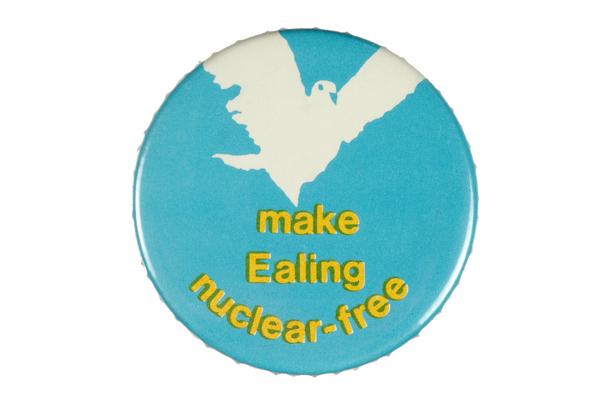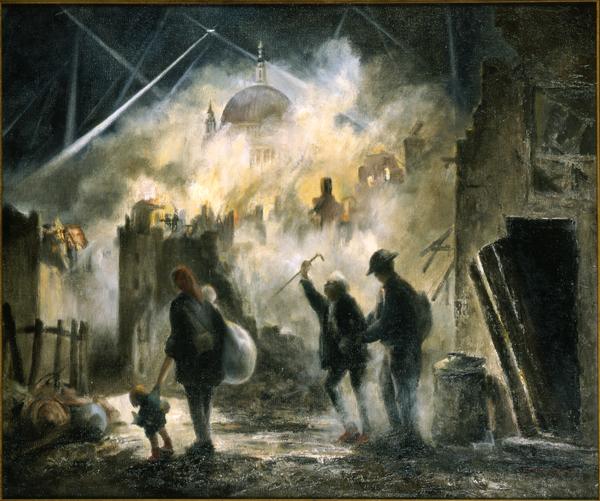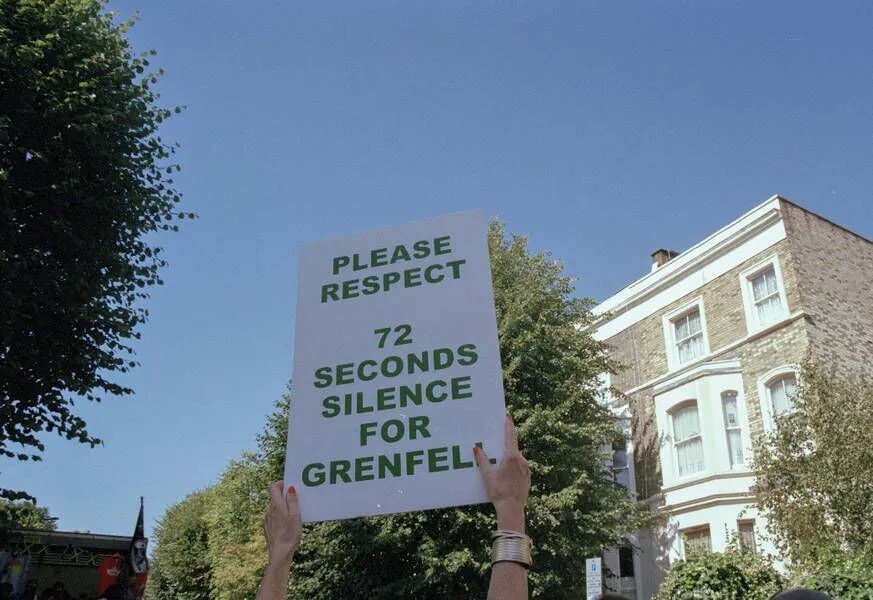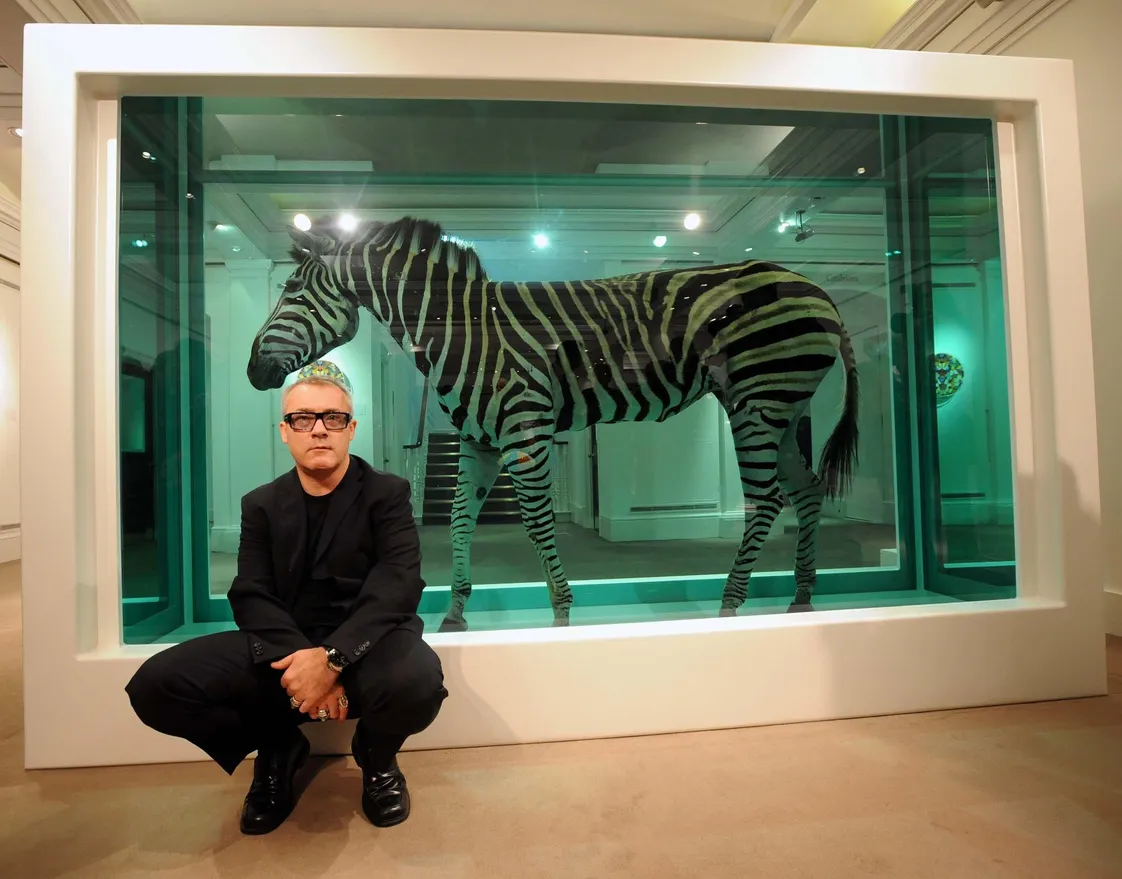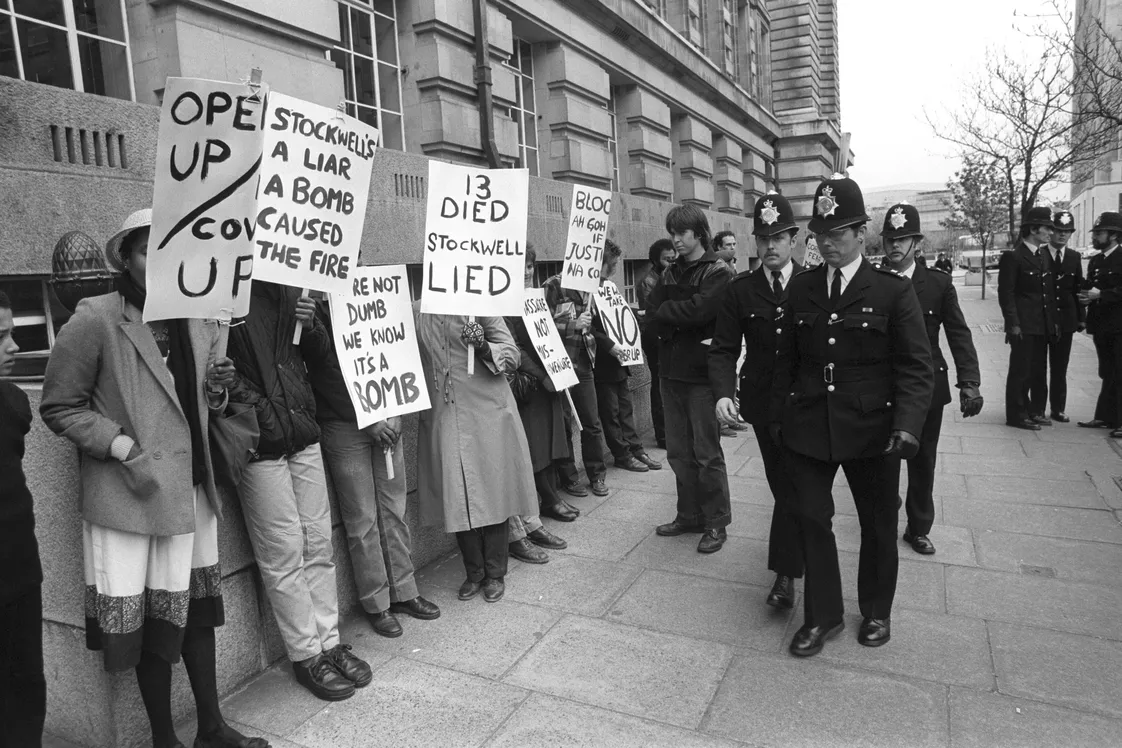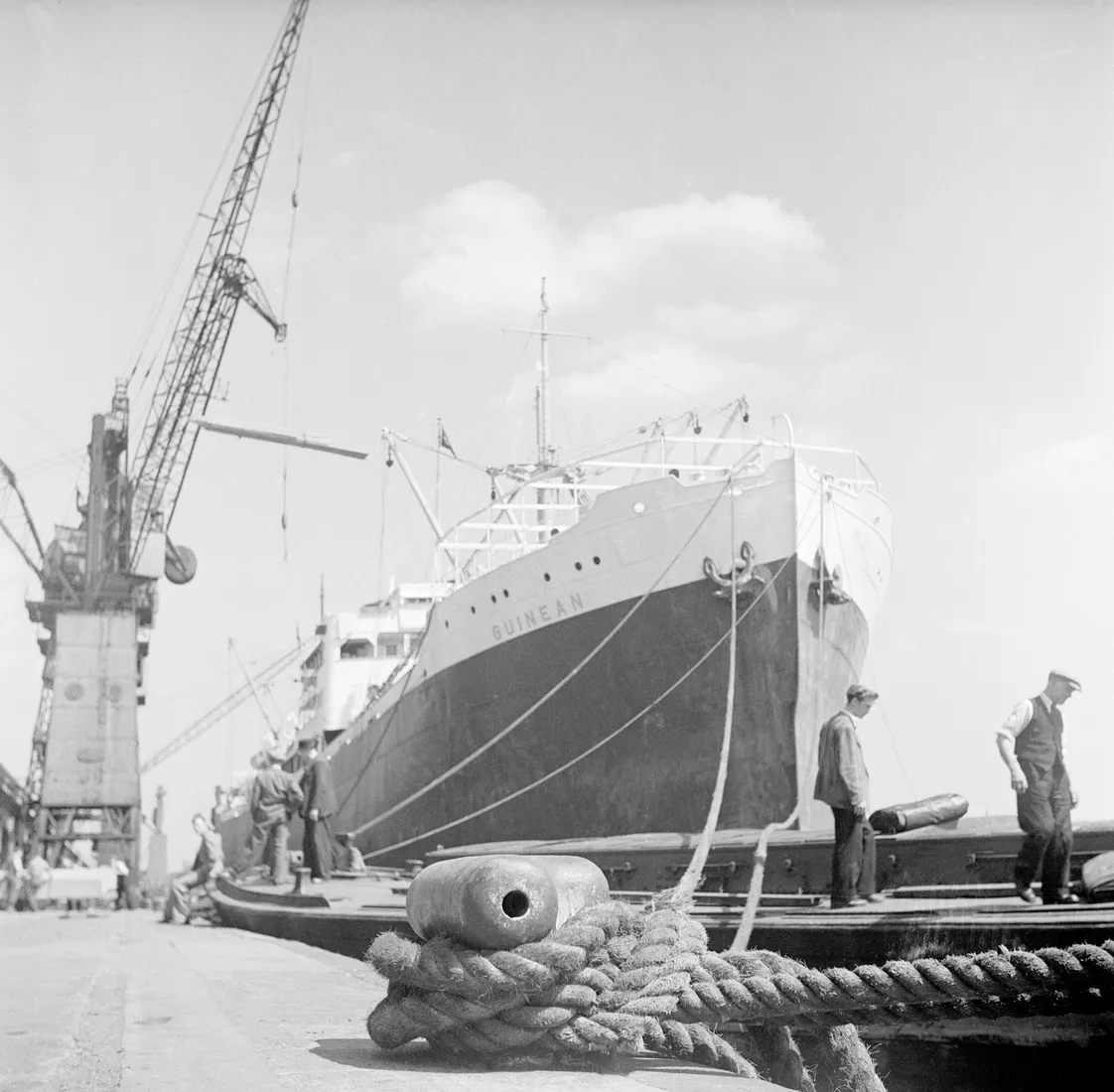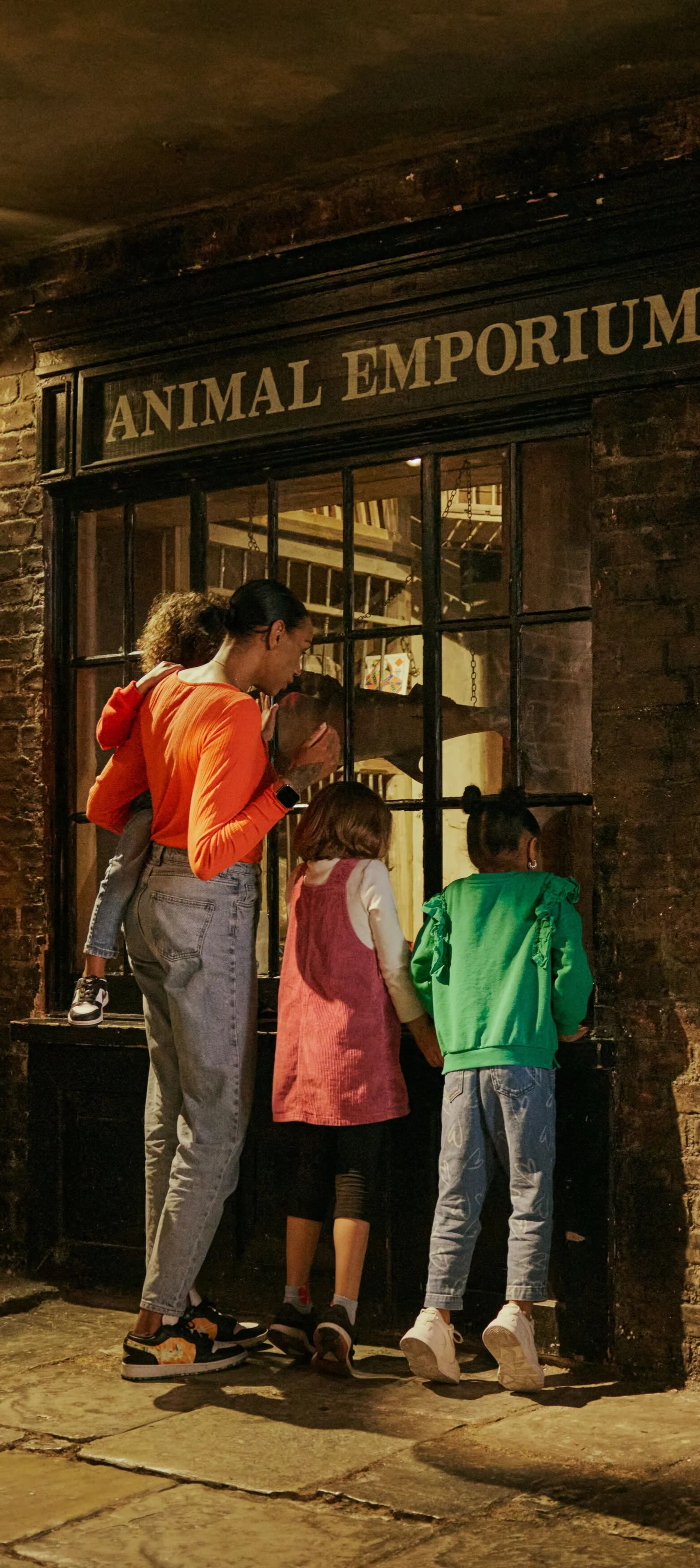Steve McQueen: Putting London on screen
Born in Ealing, west London, the Oscar-winning artist, director and film-maker Steve McQueen has given powerful expression to London’s history.
Shepherd's Bush & Ealing
1969

One of London’s finest film-makers
Steve McQueen has spent his career straddling the worlds of art and cinema. He won the Turner Prize in 1999 and an Oscar for his 2013 film 12 Years a Slave. He was knighted in 2022.
Across short films, documentaries, installations and feature-length films, McQueen frequently shows us those things which are most difficult to watch – but most important to see.
McQueen grew up in west London, and his projects have shone with an understanding of this city and its people.
His Small Axe series was a touching portrayal of life for London’s Black Caribbean community between the 1960s and 1980s. His Uprising documentary showed how the 1981 New Cross Fire led to the Brixton Uprising.
We’re thankful to have a film by McQueen in our collection. In 2017, he turned his lens on the devastating tragedy of the Grenfell Tower fire. To ensure Grenfell was never forgotten, McQueen gave a copy of his film to Tate – for the nation – and a copy to us, for London.
“some images have never been seen before. I needed to see them... I think that's why cinema's so powerful"”
Steve McQueen
A London education
McQueen was born in 1969 and grew up in Shepherd’s Bush and Ealing, west London. His parents moved to London from the Caribbean – his father was born in Grenada, and his mother in Trinidad.
At school, McQueen loved football and had a talent for drawing. McQueen has spoken about the discrimination he saw there. Teachers sorted children into groups based on biassed expectations, rather than actual potential: “it was informed by class and race and privilege. Absolutely. No ifs or buts or maybe about it,” he told the Guardian.
McQueen studied at Chelsea School of Art in west London, then Goldsmiths in south-east London, a college of the University of London famous which taught many of the Young British Artists.
In the 1990s, he sold second-hand clothes at Portobello Market in west London. “What I loved was the community,” says McQueen. “All the people with different backgrounds from all over the world. There was a wonderful energy, a familiarity, an exchange which was unlike anywhere else in London. Also, it was cool. There was a buzz. There was proudness. You were in the right place.”
Art and the Turner Prize
In the 1990s, McQueen made a series of short black and white films full of eye-catching imagery. His 1998 short film Deadpan restaged a stunt from a 1928 film by Buster Keaton, where a building falls down around him. It won McQueen the top British award for art – the Turner Prize – beating Tracey Emin in the process.
McQueen in the cinema
McQueen’s first feature film was Hunger, released in 2008, which told the story of Bobby Sands, a member of the IRA who died in prison while on hunger strike.
In 2013, McQueen directed 12 Years a Slave, named best picture at that year’s Oscars. The film told the true story of Solomon Northup, a Black American man who was kidnapped and enslaved on plantations in Louisiana in the 19th century.
It was an unrelenting depiction of the brutal realities of slavery. “I was just interested in telling the truth by visualising it,” McQueen told the Guardian. “Visualisation of this narrative hasn't been done like this before, and I think that's the thing. I mean, some images have never been seen before. I needed to see them. It's very important. I think that's why cinema's so powerful."
Small Axe, Uprising and Blitz
McQueen has directly addressed London history in his work. Small Axe, released in 2020, is a series of short films portraying the lives of London’s Caribbean community between the 1960s and 1980s.
There are episodes dedicated to the experiences of Black Londoners in education and with the police, and one about the life of writer Alex Wheatle. One focuses on a blues party soundtracked by lover’s rock, and another on the 1981 Brixton Uprising. Another tells the story of the Mangrove restaurant in Notting Hill, a hub for Black activism which was repeatedly targeted by police. When protestors challenged this harassment, some were arrested for inciting a riot and became known as the Mangrove Nine.
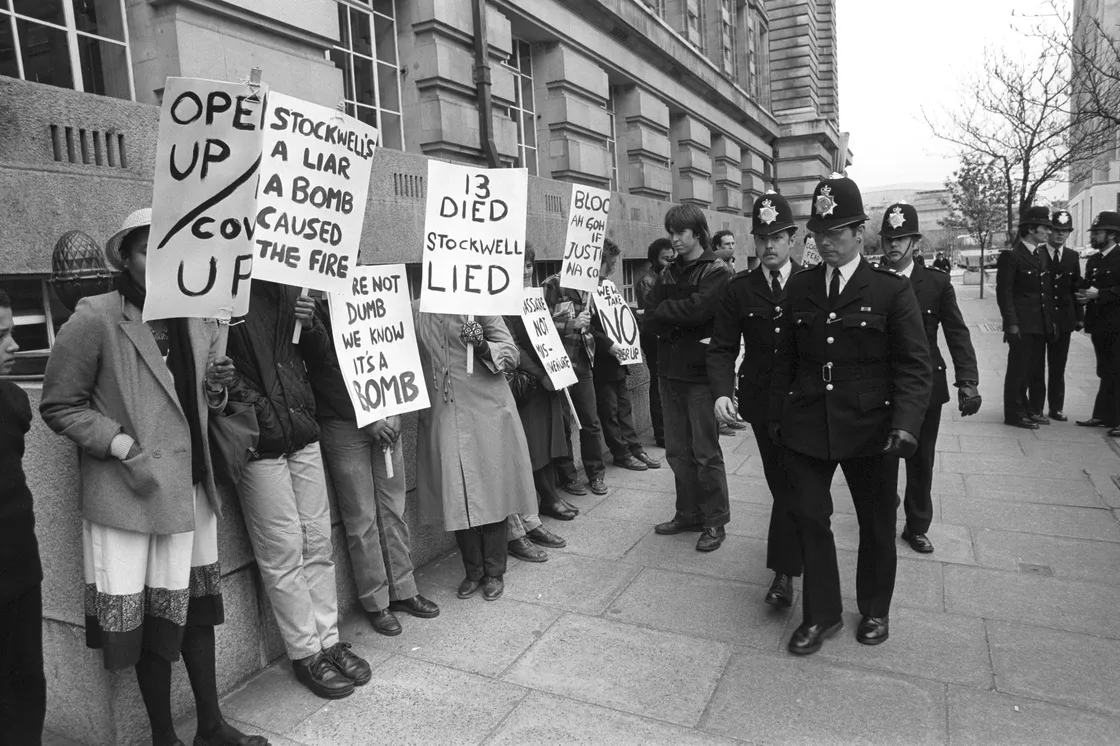
Members of the New Cross Massacre Action Committee demonstrating outside County Hall, London in 1981.
Uprising, a three-part BBC documentary released in 2021, addressed the 1981 New Cross Fire, and shows how it led to the Brixton Uprising of the same year. It’s an important account of the persistent racism and police harassment experienced by Black Londoners in the 1970s and 1980s – and the activism and community action which followed.
McQueen’s Blitz, released in 2024, focuses on a working-class family during the Second World War. It’s partly inspired by tragedies at Bethnal Green and Balham Underground stations during the bombing.
The Grenfell Tower fire
McQueen’s Grenfell film was first shown at the Serpentine in Hyde Park, Westminster in 2023. There is no voiceover – just a long, continuous aerial shot approaching and circling the remains of Grenfell Tower, destroyed by the 2017 fire which killed 72 people.
It’s a call for justice, a vital record of the tragedy and the negligence which caused it, held in London Museum’s collection for generations to come.



